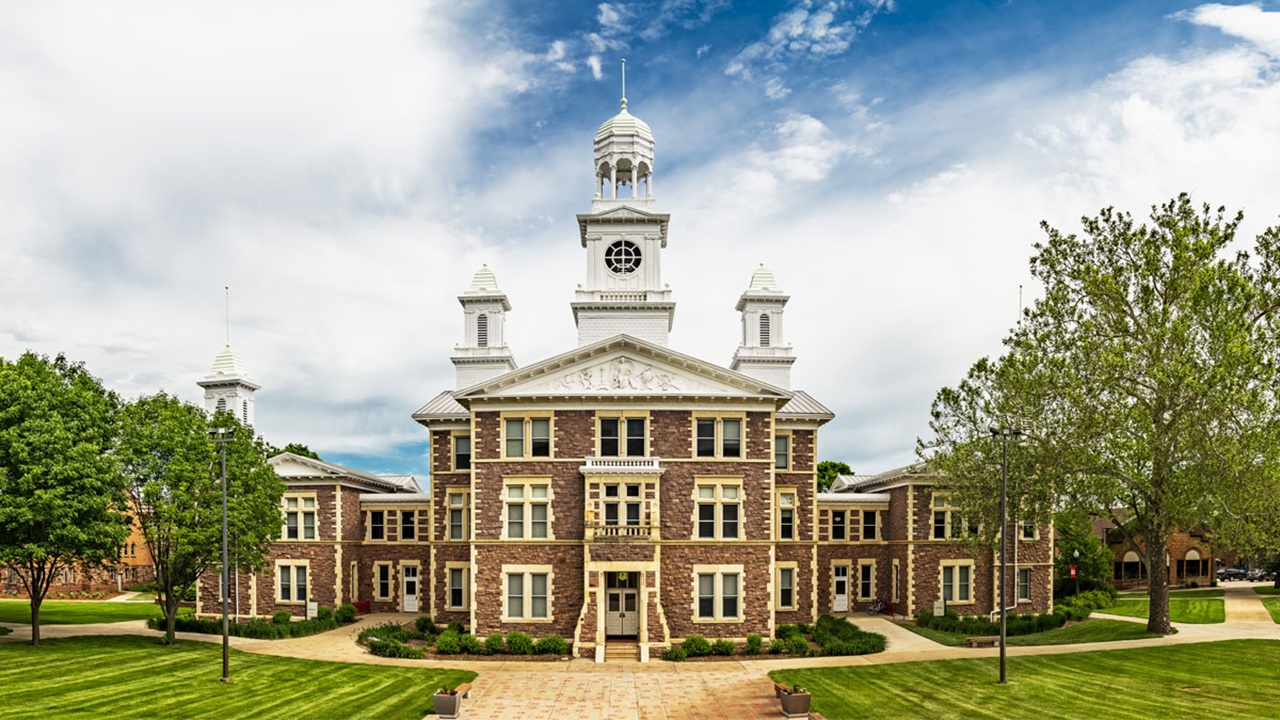Tom Barnett: A Lifetime Pursuit of Service

The 66-year-old executive director of the South Dakota State Bar Association (SDSBA) announced earlier this year that he’ll be retiring from his position after more than 28 years at the helm of the organization that oversees the admissions and discipline processes for every attorney in the state.
During his years with the SDSBA, Barnett spearheaded a computer assisted legal research program for South Dakota lawyers that is still in use today, as well as took a brief leave of absence to lead the fight against an initiated measure which would have allowed judges and juries to be sued individually for their decisions in cases.
From an early age, Barnett says he knew he wanted to be in the legal profession. At the ripe young age of 7 or 8, he remembers being a political junkie and reading his hometown newspaper, the Argus Leader.
“The bottom line is I decided I was going to be a lawyer when I was 9 or 10 years old. That was a given,” he said.
When it came time to go to college, Barnett decided to go to USD to major in government under the tutelage of legendary professor and political scientist William “Doc” Farber. During his senior year at USD in the spring of 1973, Barnett’s cousin advised him that if he wanted to practice law in South Dakota he should continue his studies in Vermillion.
“It is undeniable that he and the bar leadership over his tenure have accomplished a great deal for the good of the bar as an organization, the profession and the public it serves.”
—Dean Tom Geu
After graduating from law school in 1976, he went into public practice, working as a legal aid attorney on and around the Crow Creek Reservation. With a large service area which included Mitchell and Pierre, he handled whatever legal issues “came in the door that poor people experienced.”
“It may sound altruistic, but I was young, single, and it was an opportunity to give back to society. Certainly, private practice would have been more lucrative, but my thought was this was a time in my life when I can devote a number of years to public service,” he said.
Three years as a legal aid attorney took its toll, though.
“It was an opportunity for me to give back to society and I did it for three years and at the end of the three years I was frankly burned out from the caseload and went into private practice,” he said.
Barnett eventually found his way to the executive director role of the SDSBA where, for almost three decades, he worked tirelessly to improve the legal profession in the state. According to Tom Geu, dean of the USD School of Law, Barnett has been a “wonderful and loyal alumnus.”
Every year for more than 25 years, he’s made a presentation to the professional responsibility class at USD, and not once can Geu recall him having skipped a year.
“One thing I have come to admire is that you always know where he stands on an issue,” Geu said. “He will listen and can be convinced, but a person knows his starting point. His stating a tentative position firmly at the outset affords a great deal of efficiency in decision-making. Another
thing you can always count on is that he has the best interest of the profession as he sees it at heart.”
The work that Barnett has done for the legal profession in the state has been exemplary according to both Geu and Barnett’s longtime friend Bob Frieberg, a lawyer in Beresford.
“Looking back at his service as executive director of the South Dakota State Bar Association, it is undeniable that he and the bar leadership over his tenure have accomplished a great deal for the good of the bar as an organization, the profession, and the public it serves,” Geu said.
Frieberg said for the 30 years he’s known Barnett, he’s known the man to be very committed to his work and credits him with doing an
“I think he has maintained a good working relationship with a lot of constituencies beside the State Bar. I think he has maintained or improved the relationship between the bar and the judiciary.
He’s always been sensitive to the fact that the bar is a creature of and responsible to the judiciary — he’s been pretty faithful to that,” Frieberg said.
While his time as the head of the SDSBA might be coming to an end, Barnett says he’s far from giving up his work in public service.
“I’m thinking I want to do pro bono on my own and I’d also like to teach,” he said. “I’m young enough and still active enough that I’m not just
going to disappear and curl up. There’s plenty of things for me to do.”
Asked what advice he would give to those who are studying law now, Barnett recalls something an old law professor told his class in the '70s. The
professor told them that the practice of law allows people to live a life of “gentile poverty.”
“In other words, you’re never going to be rich, but you’re going to live a rich life,” Barnett said. “It is a rich and rewarding profession of which I am very, very proud to be a member.”



